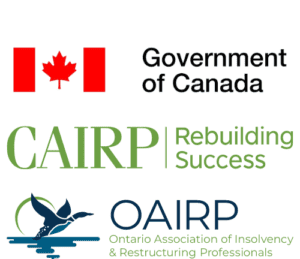If you’re wondering what happens when you declare bankruptcy in Ontario, it all begins with working with a Licensed Insolvency Trustee who guides you through each step of the process.
Bankruptcy in Ontario is a legal process under the Bankruptcy and Insolvency Act that allows individuals who cannot repay their debts to eliminate eligible obligations through a Licensed Insolvency Trustee.
Here’s how filing for bankruptcy can help you:
- Stops collection calls & legal actions — instantly regain peace of mind. Once you file, creditors must immediately cease all collection attempts and lawsuits, giving you immediate relief from the constant pressure and harassment.
- Eliminate most unsecured debts — say goodbye to credit card debt, payday loans, and outstanding bills. Bankruptcy can discharge various unsecured obligations including medical bills, personal loans, and utility arrears, potentially eliminating thousands in debt.
- Keep essential assets — protect what matters most, like your home and personal belongings. Through legal exemptions, you can often retain your primary residence, vehicles, necessary household items, and retirement accounts while still eliminating debt.
- Get expert guidance — Our Licensed Insolvency Trustees handle everything and guide you through every step. These professionals manage the entire process, negotiate with creditors on your behalf, and provide personalized advice tailored to your unique situation.
- Access free credit counselling — learn how to rebuild and strengthen your financial future. You’ll receive financial education that teaches budgeting skills and effective strategies to rebuild your credit score through responsible habits.
- Start fresh and stress-free — focus on your goals with a clean financial slate. Once discharged, you can begin rebuilding your financial life without overwhelming debt, allowing you to redirect resources toward savings and future goals.
Declaring bankruptcy can be the first step toward a brighter financial future. It’s a legal process designed to help you eliminate debt, reduce stress, and give you a fresh start.
Curious about your options?
Let’s talk. Our experienced trustees are here to help you explore solutions and explain what happens when you declare bankruptcy in Ontario, so you can make the right decision for your financial future.
📞 Call 905-721-7506 for a free consultation today!







